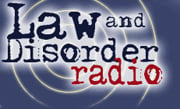Trump in the White House: Tragedy and Farce
The great issues of our times are the return of fascism to the United States and Europe, climate change, and the stagnation of the world capitalist economy. These great issues are pressing and interconnected.
We used to think that the experience of World War II guaranteed that no politician would ever advocate the ideas of fascism.
But the election of Donald Trump a year ago has caused a serious reconsideration of fascism and its relationship to capitalism and to democracy.
The neoliberals paved the way for Trump. Now he and the forces aligned with him have put our democratic institutions under attack in order to protect the rule of the wealthy. The attacks include the right to vote, labor unions, public education, an independent news media, independent public universities, the privatization of much of traditional governmental functions and making it almost impossible to launch a new political party.
The election of Trump is a political development that for concrete sociological reasons allows us to see it for what it is, as a type of neo-fascism. Only by identifying the phenomena correctly can we effectively fight it.
Jack London wrote a century ago in his famous book The Iron Heel that There is a shadow of something colossal and menacing that even now is beginning to fall across the land. Call it the shadow of an oligarchy, if you will; it is the nearest I dare approximate it. What is nature may be I refuse to imagine. But what I want to say was this: You are in a perilous position.
Guest ” John Bellamy Foster is editor of Monthly Review and professor of sociology at the University of Oregon. He has written widely on political economy and has established a reputation as a major environmental sociologist. He is the author of Marxs Ecology: Materialism and Nature (2000), The Great Financial Crisis: Causes and Consequences (with Fred Magdoff, 2009), The Ecological Rift: Capitalisms War on the Earth (with Brett Clark and Richard York, 2010), and The Theory of Monopoly Capitalism: An Elaboration of Marxian Political Economy (New Edition, 2014), among many others.
—-
Cuban US Embassy Sonic Weapons Scare
The Trump administration is considering closing the recently reopened US Embassy in Havana after several unexplained incidents that allegedly hurt American diplomats in Cuba. Some lawmakers are calling for the ouster of all Cuban diplomats from the US in addition to the 15 they’ve kicked out of the country. Its a move that would have significant diplomatic implications.
US Secretary of State Rex Tillerson made these suggestions recently. His comments were the strongest indication yet that the US might mount a major diplomatic response, potentially jeopardizing the historic restart of relations between the Cuba and US governments. The two reopened embassies in Washington and Havana in 2015 after roughly a half-century of estrangement.
Of the 21 medically confirmed US victims, some have permanent hearing loss or concussions while others have suffered nausea, headaches and ear-ringing. Some are having problems with concentration or common word recall.
Some victims felt vibrations or heard loud sounds mysteriously audible in only parts of rooms, leading investigators to consider the possibility of a sonic attack. Others heard nothing but later developed symptoms.
The US State Department has emphasized that the US still does not know what has occurred. Cuba has denied any involvement and has said that it wants to help the US resolve the matter.
Investigators have explored the possibility of an electromagnetic weapon, or an advanced spying operation gone awry. The US has not ruled out that a third country or even a rogue faction of Cubas national security services may be involved.
Guest ” Sandra Levinson, President and Executive Director of the Center for Cuban Studies. She was one of the Centers founders in 1972. In 1991 Levinson spearheaded a lawsuit against the U.S. Treasury Department which resulted in legalizing the importation of original Cuban art. She is currently directing works at the Cuban Art Space, which she founded in 1999, to properly house and archive the thousands of posters, photographs and artworks which the Center has collected in the past 42 years.
Contact the Center for Cuban Studies at 212.242.0559.



